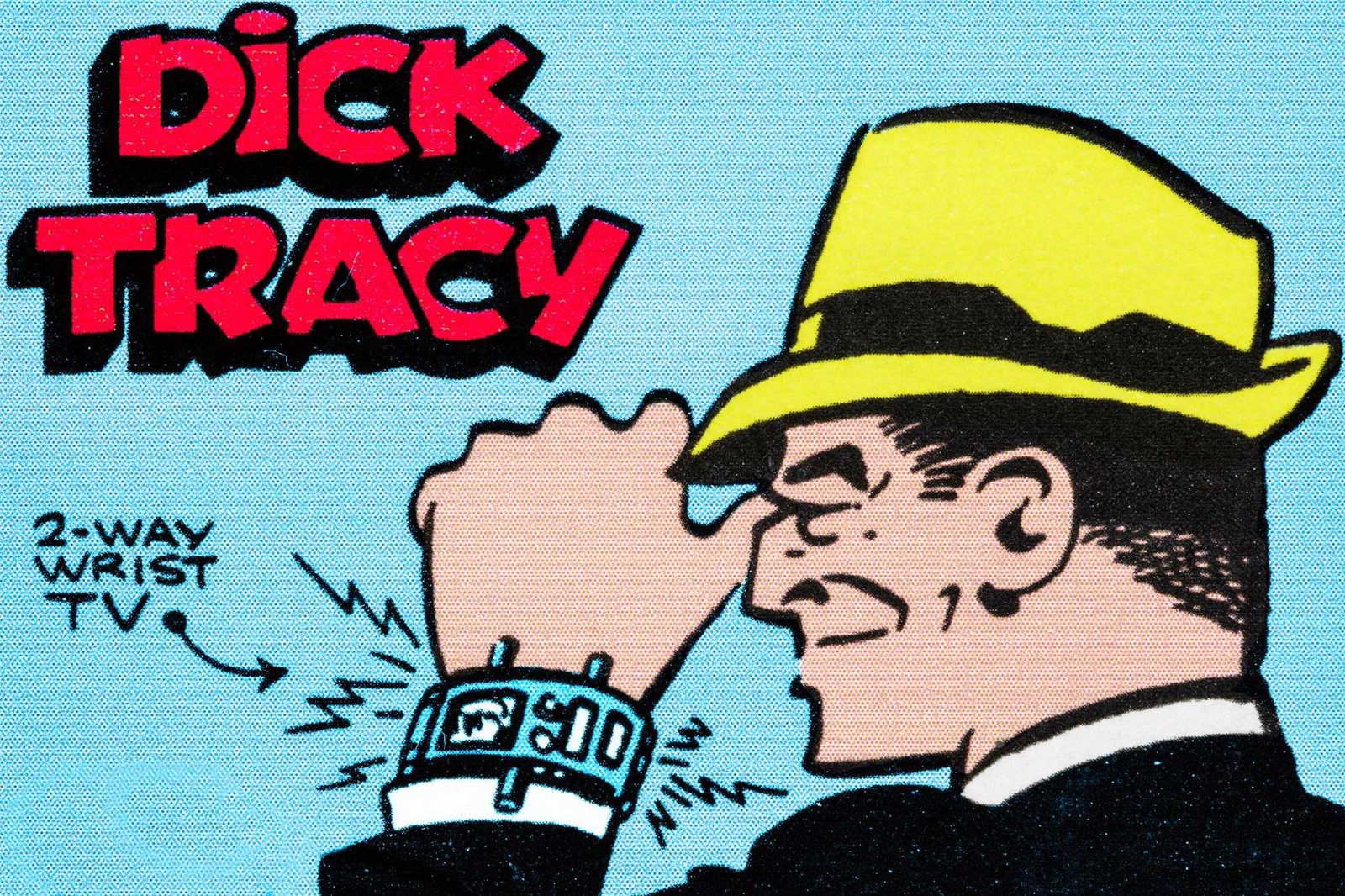Juan Negroni (opinion): Technology allows us to respond immediately. Are people too annoyed when we don’t? – CT Post
Dick Tracy.
Several weeks ago, a colleague and I were working on a project. She had sent me two emails over a few days. I missed seeing them. I was busy. Her third email asked, “Didn’t you get my three emails?” Huffy and indignant are the last two words that characterize this cordial and easygoing person. Yet I sensed a trace of annoyance in that third email.
Is such increasingly common annoyance a consequence of our latest technology? The question got me thinking about past and present ways in which we exchange information. We used to write letters to each other.
Letter-writing is almost gone now except among those who believe a thoughtful handwritten note adds a personal touch. Sometimes, of course, deciphering scribbled notes is a challenge. I’m the worst offender and have devised a way of writing each holiday card quickly … on a computer. Because of computers good penmanship as a skill to strive for is gone.
Exchanging letters was usually very slow, but it led to some colorful consequences. There was the Pony Express, which a middle-schooler I know describes as “an old-fashioned man who rode a horse and delivered mail.”
Between 1860 and 1861 Pony Express riders took 10 days to cover 1,966 miles from Missouri to California, delivering mail faster than ever. That service ended a mere 18 months after its startup. The telegraph, which can be seen as a forerunner to text messaging, did in the Pony Express business.
In the first half of the 20th century, a break from established forms of exchanging information was suggested through comic strip police detective Dick Tracy. Created in the 1930s, Tracy and his partner Sam Catchem had two-way wrist radios that helped them nab bad guys such as Coffyhead, Oodles, and Pinkie the Stabber.
Dick Tracy and Sam Catchem’s wrist-radios are viewed as having paved the way for acceptance of today’s smartphones and smartwatches. Of course, Dick Tracy never showed annoyance or anger when he spoke into his wrist radio, except when his love interest, Tess Trueheart, faced danger.
So why do today’s senders of emails and texts get so huffy and annoyed about not receiving responses in nano-seconds? Especially when it’s a personal relationship. Are they making too much of this?
Does no immediate reply mean you are being ignored? “Dumped” if it’s someone you are dating? Are we rushing to conclusions before we get all the facts? One way to resolve the no reply anxiety is the old standby — the phone.
After a phone call one might have a better understanding of the situation. It can resolve the issue. Or in a personal relationship one may decide to move on. At the very least it does away with a lingering anxiety of not knowing.
We live in an age and culture that demands instantaneous communication. And often we are “slammed.” Busy, busy in today’s lingo. I believed that’s why I missed seeing my colleague’s emails.
Should we be on our computers or smartphones constantly to be assured we see all incoming messages?
Time management consultants might have a different perspective. They contend that if we respond to emails and texts the moment they come in, we may be mismanaging ourselves — thereby cutting down our effectiveness. That is a suggestion often cited in business periodicals.
Life coaches might suggest we slow up in responding. Your “shoot-from-the-hip” message without forethought may have unintentional consequences. Think before you text or email.
So, is there anyway of managing the incoming emails and texts without offending senders when we do not respond instantaneously? There are vanilla-type apps responses that can kick in to say we are away. They have shortcomings. For example, a hacker might find a way to one’s home or office, and bad things can happen.
I’m for someone developing an app that distinguishes between scammers, sales pitches, fundraisers, and the people we welcome and want to reach us. Of course, the response message should not use the “I’m slammed” verbiage.
Far-fetched as my suggested solution may be, my plea to app developers is to begin working on it. An effective app would bring down annoyance and anxiety levels — for senders and recipients alike. And don’t forget the standby phone call to clear things up.
Juan Negroni, a Weston resident, is a consultant, bilingual speaker and writer. He is the Immediate Past Chair/CEO, Institute of Management Consultants. Email him at juannegroni12@gmail.com.




